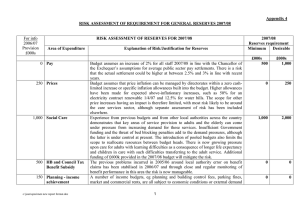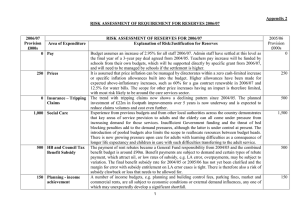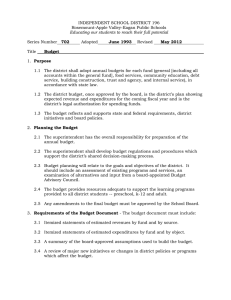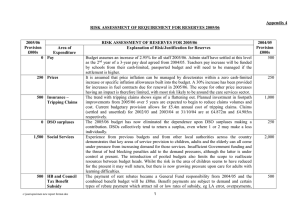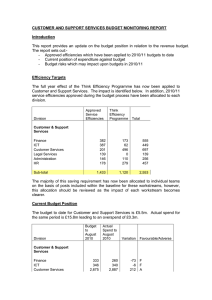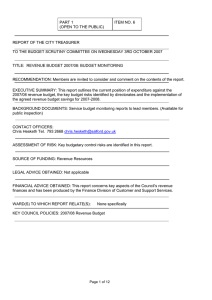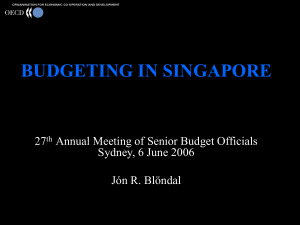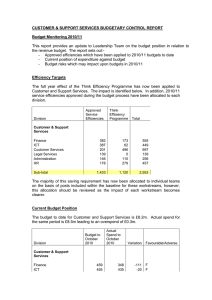Appendix 1 RISK ASSESSMENT OF REQUIREMENT FOR RESERVES 2004/05 Amount
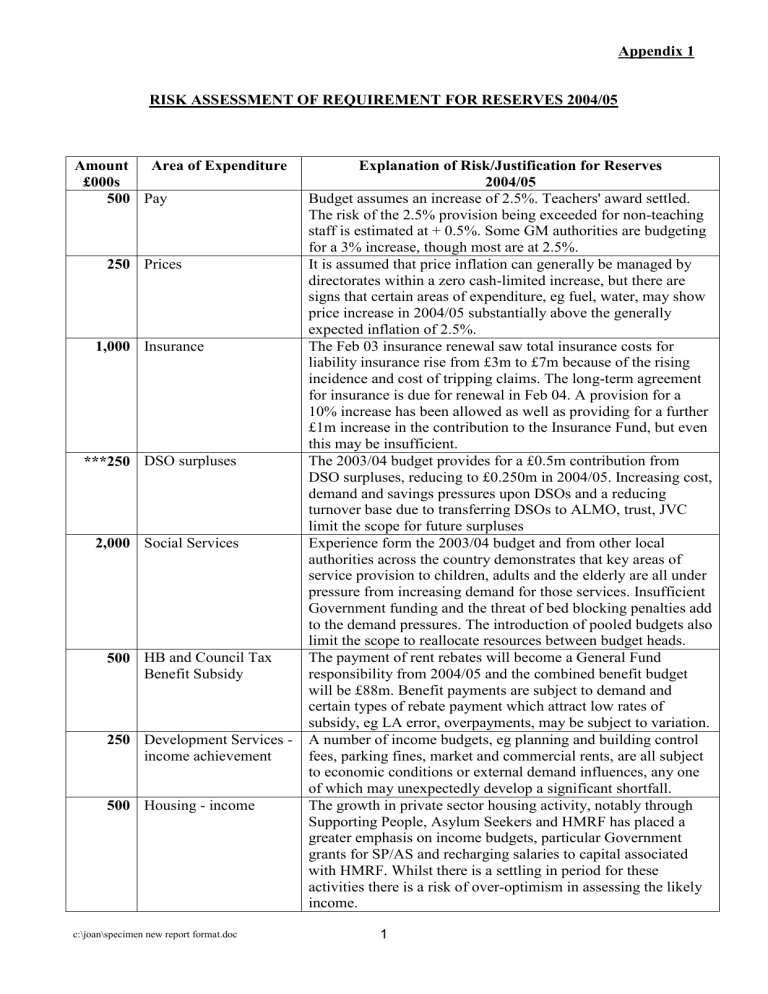
RISK ASSESSMENT OF REQUIREMENT FOR RESERVES 2004/05
Appendix 1
Amount
£000s
Area of Expenditure
500 Pay
250
1,000
***250
Prices
Insurance
DSO surpluses
Explanation of Risk/Justification for Reserves
2004/05
Budget assumes an increase of 2.5%. Teachers' award settled.
The risk of the 2.5% provision being exceeded for non-teaching staff is estimated at + 0.5%. Some GM authorities are budgeting for a 3% increase, though most are at 2.5%.
It is assumed that price inflation can generally be managed by directorates within a zero cash-limited increase, but there are signs that certain areas of expenditure, eg fuel, water, may show price increase in 2004/05 substantially above the generally expected inflation of 2.5%.
The Feb 03 insurance renewal saw total insurance costs for liability insurance rise from £3m to £7m because of the rising incidence and cost of tripping claims. The long-term agreement for insurance is due for renewal in Feb 04. A provision for a
10% increase has been allowed as well as providing for a further
£1m increase in the contribution to the Insurance Fund, but even this may be insufficient.
The 2003/04 budget provides for a £0.5m contribution from
DSO surpluses, reducing to £0.250m in 2004/05. Increasing cost, demand and savings pressures upon DSOs and a reducing turnover base due to transferring DSOs to ALMO, trust, JVC limit the scope for future surpluses
2,000 Social Services
500
250
500
HB and Council Tax
Benefit Subsidy
Development Services - income achievement
Housing - income
Experience form the 2003/04 budget and from other local authorities across the country demonstrates that key areas of service provision to children, adults and the elderly are all under pressure from increasing demand for those services. Insufficient
Government funding and the threat of bed blocking penalties add to the demand pressures. The introduction of pooled budgets also limit the scope to reallocate resources between budget heads.
The payment of rent rebates will become a General Fund responsibility from 2004/05 and the combined benefit budget will be £88m. Benefit payments are subject to demand and certain types of rebate payment which attract low rates of subsidy, eg LA error, overpayments, may be subject to variation.
A number of income budgets, eg planning and building control fees, parking fines, market and commercial rents, are all subject to economic conditions or external demand influences, any one of which may unexpectedly develop a significant shortfall.
The growth in private sector housing activity, notably through
Supporting People, Asylum Seekers and HMRF has placed a greater emphasis on income budgets, particular Government grants for SP/AS and recharging salaries to capital associated with HMRF. Whilst there is a settling in period for these activities there is a risk of over-optimism in assessing the likely income. c:\joan\specimen new report format.doc 1
250
250
500
Education - SEN
Non-achievement of savings
Unforeseen expenditure
/income shortfall
Demand pressures from a potential increase in the number and cost of out-of-district placements (linked with Social Services demands) and transport.
There is a risk that some proposals built into the budget plans cannot be delivered on time or at all.
There is a risk that unexpected events may occur which require expenditure to be incurred or income to be foregone which have not been budgeted for.
200 Treasury Management Investment returns may under-achieve budget assumptions or borrowing costs may exceed budget assumptions as a result of rising interest rates. Assessed risk is of a 0.5% under-
***500 Capitalisation of revenue achievement on assumed investment return of 4% and a 1% increase on assumed borrowing costs of 5% on £20m of new borrowing.
Budget plans are for £4m to be capitalised in 2003/04, reducing to £3m in 2004/05 and £1m in 2005/06. There is a risk that insufficient expenditure can be identified within the revenue budget that can be legitimately categorised as revenue.
6,950 Total
*** = these areas of risk will only be present at the amounts indicated in 2004/05 and will not be present or be reduced in 2005/06 if the medium-term budget strategy is adhered to. c:\joan\specimen new report format.doc 2
